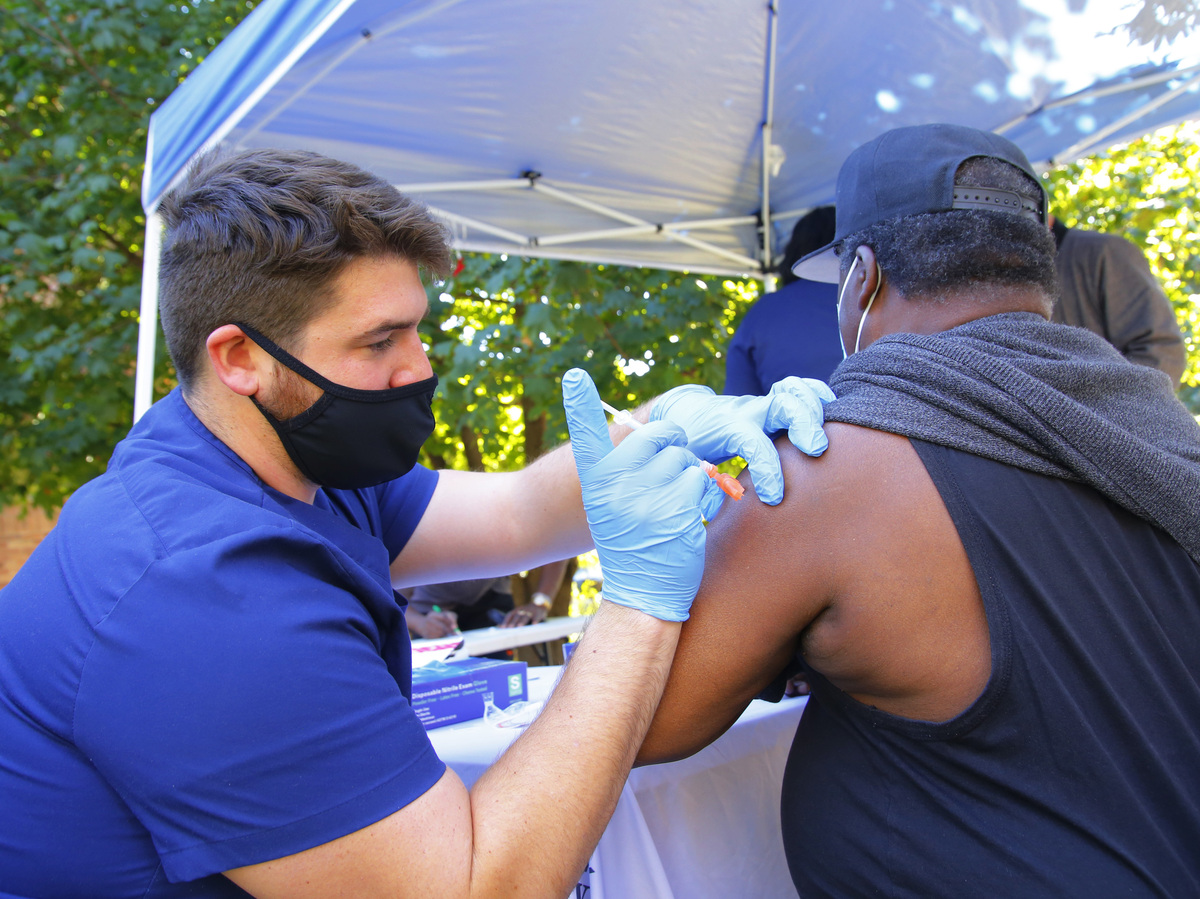
A health care worker administered a Pfizer-BioNTech COVID-19 vaccine at the Life of Hope Center in New York City Thursday.
Michael M. Santiago / Getty Images
Hide caption
Toggle caption
Michael M. Santiago / Getty Images

A health care worker administered a Pfizer-BioNTech COVID-19 vaccine at the Life of Hope Center in New York City Thursday.
Michael M. Santiago / Getty Images
The Centers for Disease Control and Prevention is supporting the rollout of COVID-19 vaccine boosters from Moderna and Johnson & Johnson, in line with Food and Drug Administration approvals issued Wednesday. The CDC also supports a mix-and-match approach to booster vaccinations.
CDC Director Rochelle Walensky called the recommendations an “example of our fundamental commitment to protecting as many people as possible from COVID-19”.
The announcement came just hours after the CDC’s Vaccine Advisory Committee unanimously voted for booster doses.
For Moderna, the panel said that people should be given a booster on the same terms as the Pfizer BioNTech booster. This would include people aged 65 and over, people aged 18 and over in long-term care facilities, and people between the ages of 50 and 64 with relevant underlying conditions. The booster can be given to people between the ages of 18 and 49 with certain medical conditions and those between 18 and 64 who are at risk of COVID-19 due to their work or who live in certain facilities.
For Johnson & Johnson, the panel’s advice was simpler: a booster vaccination is recommended for people aged 18 and over at least two months after their first vaccination.

A CDC presentation and draft voting stated that the same vaccine that was used for the primary vaccination should be used as a booster dose, but a mix-and-match approach is fine if the primary vaccine is not available or a different vaccine is preferred.
During committee discussions, several members rejected this preference for a booster with the same vaccine. They argued that a more permissive approach to mix-and-match would make it easier to give booster doses.

After a brief pause late in the deliberations, the CDC staff returned with revised voting questions that were neutral as to which vaccine should be used as a booster for the J&J and Moderna vaccines. The revised questions do not explicitly mention which vaccine should be used as a booster, which paves the way for mix-and-match boosting without restrictions.
According to the CDC, more than 189 million people in the US are fully vaccinated, or about 57% of the population. According to CDC data, hospitalization rates in unvaccinated adults are nine to 15 times higher than vaccinated adults.
Still, there are reasons to believe that boosters might be useful for some groups of people.
The effectiveness of Moderna against infection with the coronavirus has diminished over time and given the Delta variant. Hospital protection has generally remained strong, although there have been some decreases in the elderly.
For the J&J vaccine, protection from infection and hospitalization was fairly stable, the CDC pointed out. However, the vaccine was overall less effective than the Moderna and Pfizer vaccines, so a booster dose can take protection from the J&J vaccine to a higher level.
The committee struggled to weigh the risks and benefits of boosters in some groups. People over 65 have the most to win and a relatively small increased risk. For the Moderna vaccine, protection is still pretty strong for younger people, and their risk of heart inflammation is higher, especially in men.
With the J&J vaccine, there were concerns about rare blood clots after vaccination, which are a higher risk for younger women. But there are overall benefits from a booster, as the protection is increased from the second dose onwards.
Thank You For Reading!
Reference: www.npr.org
